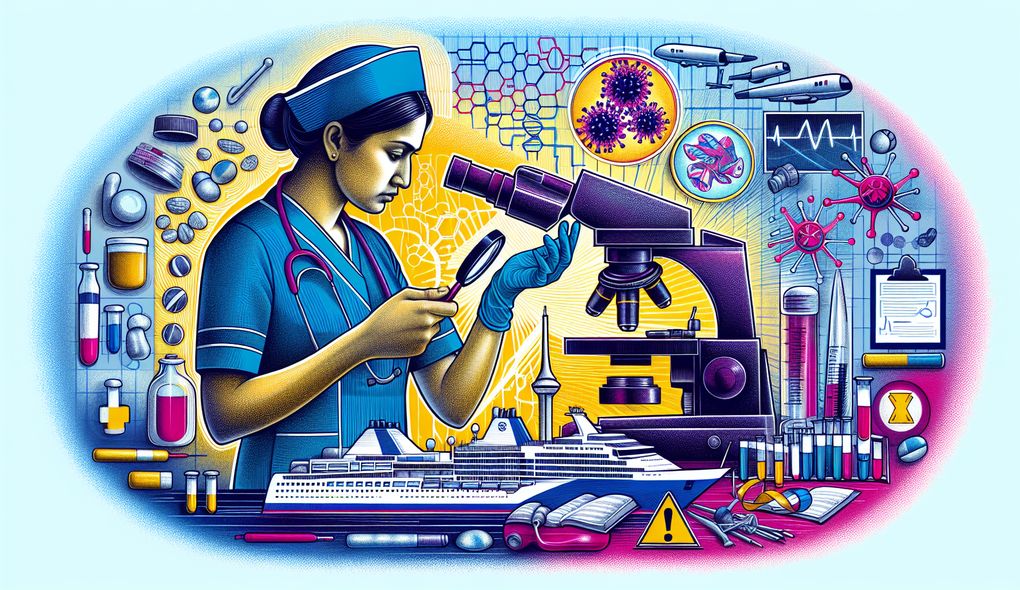Describe a time when you encountered a challenging or difficult patient. How did you handle the situation?
JUNIOR LEVEL

Sample answer to the question:
I encountered a challenging patient during my clinical rotation at a hospital. The patient was agitated and uncooperative, making it difficult to provide the necessary care. I handled the situation by remaining calm and patient, using active listening skills to understand their concerns. I reassured the patient, explaining the importance of the care and addressing their fears. Eventually, the patient started to trust me and allowed me to provide the care needed. This experience taught me the importance of empathy and effective communication when dealing with challenging patients.
Here is a more solid answer:
During a forensic examination, I encountered a patient who had been a victim of domestic violence. They were visibly anxious and reluctant to provide information or cooperate with the examination process. I quickly realized that establishing trust and creating a safe environment for the patient was crucial. I calmly explained the purpose of the examination, ensuring that confidentiality and privacy were guaranteed. By actively listening and empathizing with the patient, I was able to address their concerns and fears. This allowed me to gather the necessary evidence while ensuring their emotional well-being throughout the process. I documented every interaction and observation meticulously, paying attention to detail and adhering to the legal standards. This experience reinforced the importance of clear and compassionate communication in dealing with challenging patients while maintaining professionalism.
Why is this a more solid answer?
The solid answer provides a more comprehensive and specific example of a challenging patient encounter related to the job requirements. It demonstrates the candidate's ability to conduct forensic examinations, communicate effectively with patients, and handle sensitive situations with empathy and professionalism. However, it could still provide more details about the specific forensic examination conducted and the candidate's role in navigating the justice system.
An example of a exceptional answer:
During a forensic examination, I encountered a patient who had experienced a sexual assault. They displayed extreme distress and distrust towards healthcare professionals. To handle the situation, I immediately connected with the patient by sharing my role as a forensic nurse practitioner and emphasizing my commitment to providing compassionate care. I explained the importance of the examination in gathering evidence for legal proceedings, reassuring them that I would prioritize their comfort and confidentiality. Recognizing the patient's trauma, I employed trauma-informed techniques throughout the process, such as obtaining consent at each step and explaining the purpose and significance of every procedure and observation. I also collaborated closely with law enforcement and legal professionals to ensure the preservation and documentation of evidence aligned with the legal standards. This experience reinforced my critical thinking and problem-solving skills as I navigated the challenging dynamics of the justice system while maintaining a patient-centered approach.
Why is this an exceptional answer?
The exceptional answer goes above and beyond in providing specific details of a challenging patient encounter that aligns with the job requirements. It showcases the candidate's ability to handle sensitive situations with empathy, navigate the justice system effectively, and document evidence accurately. The answer highlights the candidate's awareness of trauma-informed care and their commitment to patient-centered practice. However, it could still elaborate further on the specific collaboration with law enforcement and the candidate's expertise in providing expert forensic testimony in court.
How to prepare for this question:
- Reflect on past experiences working with challenging patients and consider how they relate to the job requirements of a forensic nurse practitioner.
- Familiarize yourself with legal standards and processes related to evidence collection and preservation.
- Practice explaining complex medical and legal concepts to patients in a clear and compassionate manner.
- Develop your active listening and empathy skills, as they are crucial in dealing with challenging or traumatized patients.
- Stay updated with current forensic nursing practices and legal requirements by engaging in continuous education.
What are interviewers evaluating with this question?
- Strong clinical skills and ability to conduct thorough forensic examinations.
- Excellent documentation skills and attention to detail.
- Strong verbal and written communication skills.
- Ability to handle sensitive situations with empathy and professionalism.
- Critical thinking and problem-solving skills.
- Knowledge of legal standards and ability to navigate the justice system.

